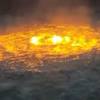MiSustainable Holland: Fishing line recycling and Beach Buddy ...

HOLLAND — If you’ve been out and about along West Michigan shorelines this summer, you might have noticed some new mounted receptacles in popular fishing and boating spots. These white PVC pipes are fishing line collection bins, placed there with the intent of keeping monofilament out of our ecosystems.
When disposed of improperly, monofilament fishing line can cause serious problems for wildlife, swimmers, boat propellers, and the environment. Because monofilament line can last up to 600 years in freshwater, it poses a persisting danger to our watershed.
Monofilament is made of high-density nylon, meaning that, when collected and sent to a recycler, it can be melted down into plastic pellets. These pellets can then be reprocessed as a raw material for plastics manufacturing.
After it's collected, the fishing line is sorted, packaged, and shipped to Berkley Conservation in Iowa for processing. It's then recycled into tackle boxes, spools, fish habitats, and toys. Since 1990, the Berkley Conservation Institute, with the help of outdoor enthusiasts everywhere, has recycled more than 9 million miles worth of fishing line.
In conjunction with the BoatUS Foundation’s Fishing Line Recycling Program, the Ottawa Conservation District, City of Holland, and ODC Network have built and mounted many monofilament collection stations along the lakeshore.
You may have noticed other containers along the shorelines and beaches this summer, as well. Ottawa County Parks and Recreation is encouraging visitors to help keep our beaches clean with their Beach Buddy Program.
These stations, outfitted with small buckets for collecting litter, can be found at Tunnel Park, Kirk Park, and North Beach Park. To participate, simply borrow one of the buckets, collect trash while enjoying your day at the park, dump into a nearby clear trash receptacle, and return the bucket to the Beach Buddy station for other environmental stewards to use next.
The trash collected from the Beach Buddy Program will periodically be collected, weighed and reported to track success efforts.
The program was developed, built, and installed by students from the Careerline Tech Center in 2022 in an effort to involve the community in keeping the beaches clean, while also providing education on the dangers of small plastics that affect the Great Lakes. It was initially offered in partnership with the Lakeshore Cleanup Coalition and is being continued by Ottawa County Parks and Recreation.
Subscribe:Receive unlimited access to your local news coverage
With your help, we can utilize both of these programs to help keep our shorelines and waterways clean and plastic-free. If you know of a location that could use a fishing line collection bin, please contact the ODC Network at odc@outdoordiscovery.org to request a receptacle be placed there.
— Samantha Sweet is a watershed intern and preschool teacher at the ODC Network.
About This Series:MiSustainable Holland is a collection of community voices sharing updates about local sustainability initiatives.This Week’s Sustainability Framework Theme: Environmental Awareness/Action: Environmental education and integrating environmental practices into our planning will change negative outcomes of the past and improve our future.


 New Zealand
New Zealand Argentina
Argentina  Australia
Australia  Austria
Austria  Brazil
Brazil  Canada
Canada  Chile
Chile  Czechia
Czechia  France
France  Germany
Germany  Greece
Greece  Italy
Italy  Mexico
Mexico  Nigeria
Nigeria  Norway
Norway  Poland
Poland  Portugal
Portugal  Sweden
Sweden  Switzerland
Switzerland  United Kingdom
United Kingdom  United States
United States 




























